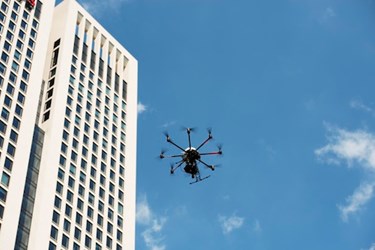Virginia Is First State To Pass Legislation Governing Delivery Robots

By Christine Kern, contributing writer

As delivery technology develops, Virginia addresses rules and regulations.
Virginia has become the first state to pass legislation that regulates the use of delivery robots, allowing them to operate on sidewalks and through crosswalks. The new state law will go into effect on July 1. While the new law does not require delivery robots to function within the line of sight of a human operator, it does require the operator to be able to take over in case of an issue with the robot. It also imposes a 10 mph speed limit and a 50 pound weight limit on the delivery robots.
Similar legislation has also been proposed in Florida and Idaho. The Florida law was proposed by Senator Jeff Branes (R-St. Petersburg), and it would create a regulatory framework for personal delivery robots. Idaho House Bill 204, created in consultation with Estonian-based delivery robot maker Starship Technologies, would regulate these robotic deliveries. Co-sponsor of the bill Representative Jason Monks explained, “We heard about Amazon talking about drones before on delivery techniques and this is just one more advance that I think we’ll see. I think that this is the beginning of a cusp of a lot of different delivery methods that we’re going to see.”
The Virginia law was proposed by Ron Villanueva and Bill DeSteph, who consulted with Starship Technologies to gather input for the legislation. Starship Technologies began a trial with Postmates and DoorDash to beta test robotic deliveries in Redwood City, California and Washington, D.C., so they have a stake in seeing positive legislation come into play.
The pilot will gauge feasibility of robotic deliveries for the future, including measuring associated costs versus traditional methods, and no extra charges will be imposed for the robot deliveries. Postmates, in particular, is positive about the trial, and says that if it goes well, it will expand the use of robots to more areas. Postmates makes some 1.5 million deliveries per month.
As Amazon moves forward with its drone delivery plans, perhaps robotic deliveries could become a formidable competitor for retailers and merchants who are hoping to win over tech-savvy customers.
Of course, the move from trial to standard practice for robotic and drone deliveries will also create a real need for regulatory guidance, and Virginia, Florida, and Idaho seem poised to be on the fast-track to creating that oversight.
There wasn’t push back [from legislators],” Rep. Villanueva told Recode. “It was more like intrigue and curiosity about the technology, what the application would be, how it would benefit the citizens.”
Virginia lawmakers received letters of support from Amazon, Grubhub, and other companies, asking them to pass the new robotic delivery law, said Rep. Villanueva. And while Starship had a hand in creating the legislation, the law also opens the doors to other delivery robotics companies and delivery services to operate in Virginia.
